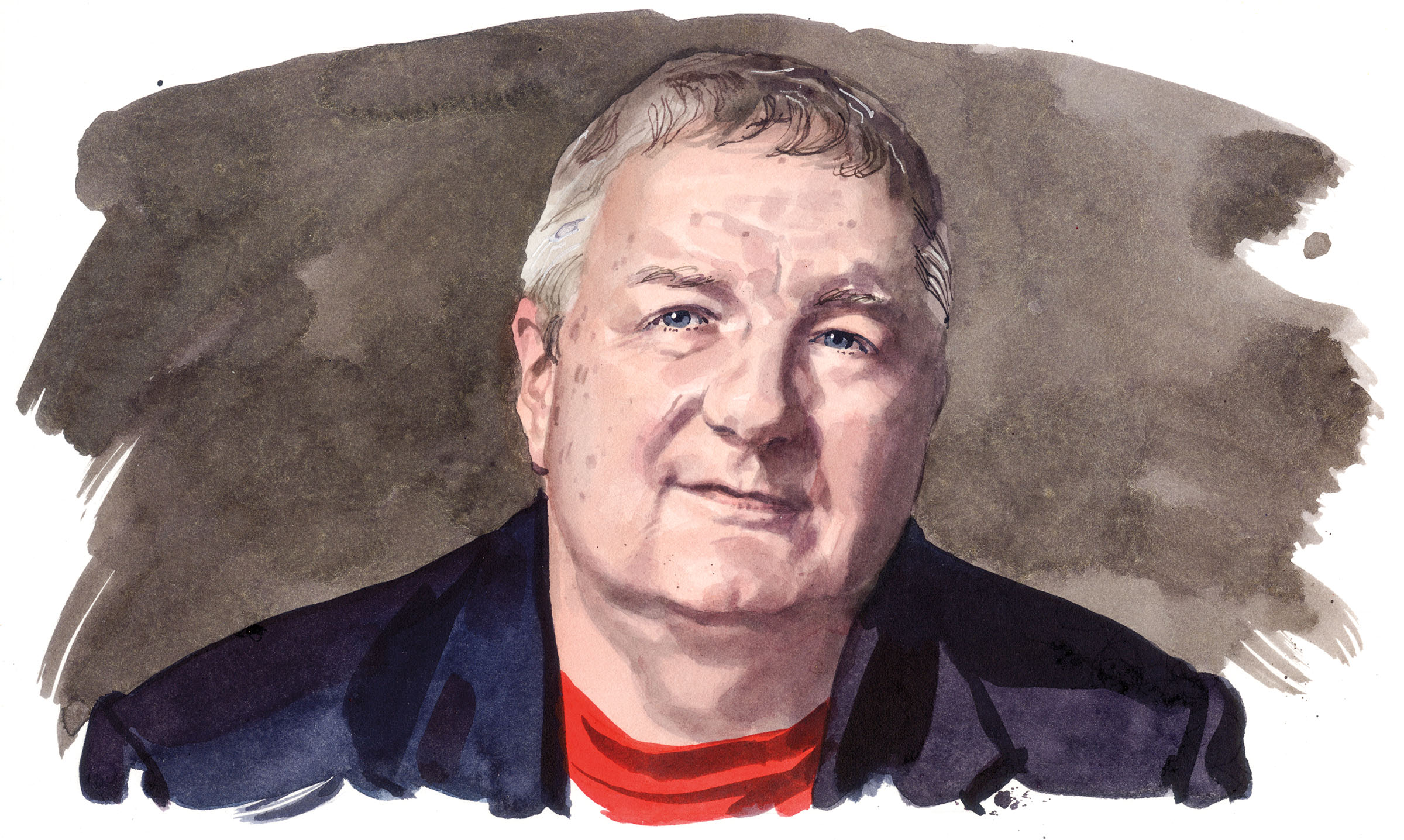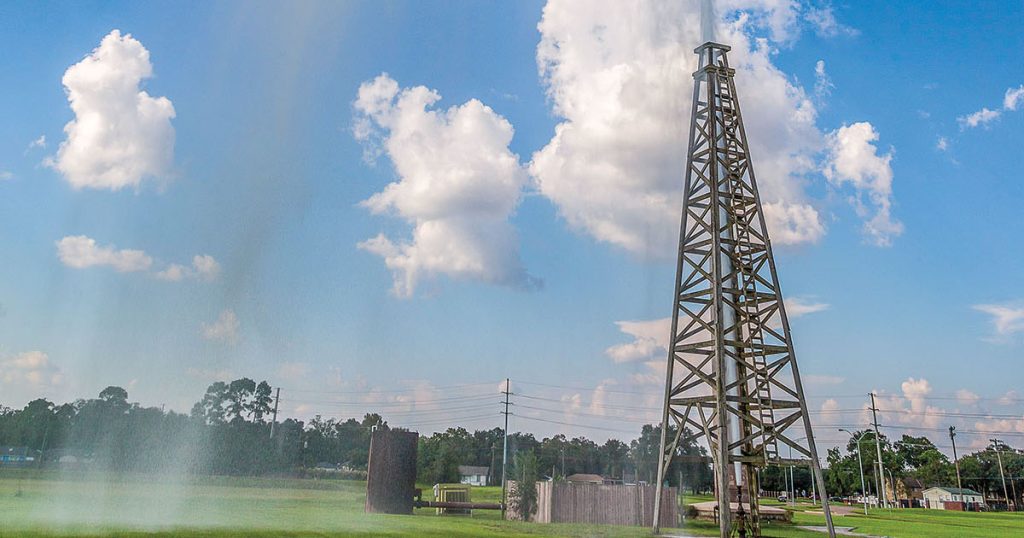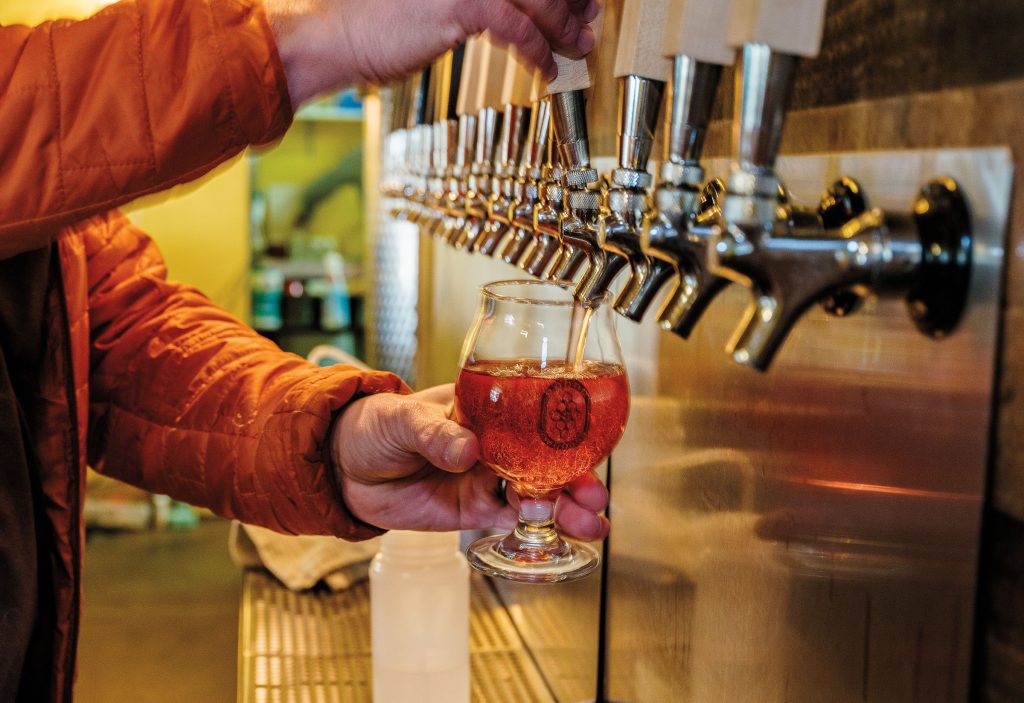
Illustration by Matt Cook
Jeff Guinn looks like a benevolent uncle as he sits in the leather booth of Paris Coffee Shop, a historic diner in his longtime home of Fort Worth. But this masterful historian has chronicled some of the great madmen of the late 20th century: Charles Manson, Jim Jones, and now David Koresh. “I’m not drawn to tragedy,” Guinn said. “I only want to write about events that have a lingering effect.”
His new book, Waco: David Koresh, the Branch Davidians, and a Legacy of Rage, is one of three new titles that have been published this year about the 51-day standoff at Mount Carmel in spring 1993, resulting in more than 70 deaths. Guinn’s account offers a rare glimpse inside negotiations led by the Bureau of Alcohol, Tobacco, Firearms and Explosives (ATF), and like so much of Guinn’s work, the narrative manages to be page-turning and deeply researched at once. From the origins of the Branch Davidians to the local media’s role in ratcheting up a tense situation, Guinn’s book delves into the fear and loss experienced on every side.
A former reporter at the Fort Worth Star-Telegram, Guinn has written more than 20 books over the past two decades, including The Road to Jonestown: Jim Jones and Peoples Temple. The latter was optioned earlier this year by Leonardo DiCaprio. But Guinn retains the laid-back demeanor of Fort Worth. When I asked him to meet me at his favorite local hang, he suggested Roy Pope Grocery and Benito’s before we settled on Paris Coffee Shop in the trendy Near Southside neighborhood. When the server brought our check, Guinn fell into an easy conversation with her. “See why I like this place?” he said.
TH: The Waco siege has been the subject of movies, books, and documentaries. Why tell the story again?
JG: The things that happened at Mount Carmel are ground zero for what’s scaring the hell out of us today. Militia movements, anti-government mobs, a culture split in half and neither side is going to bother understanding the other one. If you want to understand now, you have to go back to that moment. There was no conspiracy. There was human error.
TH: What were some of the worst decisions?
JG: The biggest mistake the ATF and FBI made was not bothering to find out what the Branch Davidians believed in the first place. David Koresh had prophesied that they would be killed by Babylon to start the end of times. To this day the Branch Davidian survivors believe in David Koresh. That’s what’s gotten them through the past 30 years—the unshakable belief that it’s all ordained. Mount Carmel is painful to write about—no heroes, no villains. The people who lived through it, even the agents, are still victims. So many bad things happened because people made assumptions without knowing the facts.
TH: There are so many Waco conspiracy theories and alternate histories. I watched The Rules of Engagement documentary back in 1997, and it places a lot of blame on the government, which I found persuasive.
JG: But that was based on testimony from surviving Branch Davidians. That matters. When I pick a subject to write about, it has to be a story I don’t think has been completely told. And Waco wasn’t. This book has the perspective of the ATF, and it has surviving Branch Davidians who haven’t spoken before. The initial books didn’t have the advantage of being written 30 years later.
TH: You’ve written about Charles Manson, Jim Jones, and now David Koresh. What do they have in common?
JG: Everyone says I’m writing about cults. But I’m writing about demagogues and why people believe. The first warning sign of a demagogue is when someone says we’re in terrible peril, and I am the only one who can stop it. The second is that a true demagogue cuts followers off from families, friends, and the media. That happened with all three. But Charlie Manson was a con artist who didn’t believe a thing he said. Jim Jones, if he had been killed in a car wreck before he went out to California, would be remembered as one of the heroes of the early Civil Rights Movement—but then drugs and hubris got him. Vernon Wayne Howell, who became David Koresh, did not have one original prophesy, but he absolutely believed he was a prophet.
TH: The depth of your history is impressive. You look for a 360-degree view. Did you study history growing up?
JG: Very much so. I was an Air Force brat who didn’t speak English until I was 5. [His first language was Italian.] When I lived in Europe, I would visit museums. We lived in Italy, Germany, and England.
TH: How did you become a writer?
JG: After college at the University of Texas, I taught seventh grade English for a while, and then I started working for the Star-Telegram. I wrote seven books during those years, none of which sold over a dozen copies. Then I wrote a novel called The Autobiography of Santa Claus, where Santa told the history of Christmas. I thought of it like The Muppet Movie—there’s stuff for kids but the adults are cracking up. It eventually sold around 400,000 copies. I was still working at the Star-Telegram when my editor called to tell me I was on the New York Times bestseller list, and I thought: That’s the lead on my obit.
TH: Is there much of a literary legacy in Fort Worth?
JG: It’s me, Dan Jenkins [the beloved golf writer who died in 2019], and Sandra Brown [author of 73 New York Times bestsellers]. Years ago, I watched Sandra with her fans, and she made every one of them feel special. If they wanted to talk for 10 minutes about the first book, fine. I decided then and there I would try to be like Sandra Brown.
TH: What’s the best part about living in Fort Worth?
JG: Barbecue and Mexican food. Benito’s for Mexican food, Angelo’s for barbecue. Benito’s serves the basics but does things with cheese-filled chile relleno that make taste buds sing. Angelo’s is old-fashioned barbecue—brisket, ribs, and sausage—and it’s deservedly a Fort Worth institution.
TH: What’s a cool local place that people don’t know about?
JG: A little shop called Record Town: best assortment of blues and Western swing anywhere. It always yields surprises like a classic Ray Sharpe album or rare B.B. King vinyl that you didn’t know existed but instantly must have.
TH: Given your interest in conspiracy and your proximity to Dallas, how have you not written about Lee Harvey Oswald?
JG: I don’t know that there’s anything new to say about it. The one part I find interesting is Jack Ruby. I thought about writing a book on him. But Waco is having a bigger effect on us now.
TH: Have you ever seen a city turn around its reputation as fast as Waco?
JG: They have Chip and Joanna [Gaines] to thank for that. I could not believe there are tour buses that come to Waco now.
Visit Jeff Guinn’s author page at simonandschuster.com/authors to learn more about Waco and sign up for author alerts.








